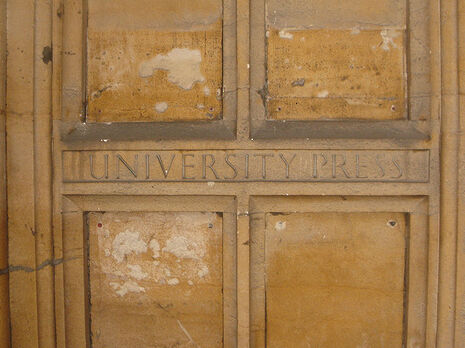CUP refuse to publish Putin Book
Cambridge University Press refuse to publish ‘Putin’s Kleptocracy’.

Cambridge University Press (CUP) has refused to publish a book entitled: Putin’s Kleptocracy: who owns Russia?The book, based on five years of original research, details the growth in authoritarianism and systematic corruption in Russia since the 1990s.
It accuses Vladimir Putin and his “cronies” of orchestrating this process for their benefit. Its author, Karen Dawisha, has argued the book is particularly relevant at the moment, considering that Russia is currently the target of Western sanctions imposed in reaction to the Ukraine crisis.
CUP were unwilling to proceed beyond the proposal stage due to the fear that those implicated might sue the publishing house for libel. CUP further claimed that they “were not convinced that there was a way to rewrite the book that would give them the necessary comfort” that they would avoid prosecution. They asserted, however, that “the decision had nothing to do with the quality of the research”.
Dawisha’s response to CUP highlighted broader concerns with “the difficult situation” of the growing influence of Putin’s oligarchy. She decried the fact that “even the most significant British institutions cower and engage in pre-emptive book-burnings as a result of fear of legal action”. Both CUP and Dawisha pinpointed British libel laws as a major obstacle to the publication of Putin’s Kleptocracy.
In a similar incident in 2007, a Saudi Arabian businessman sued CUP over their book, Alms for Jiihad, which accused him of funding terrorist networks. The resultant settlement led to CUP pulping its remaining stock of the book. This became a key case in spurring attempts to reform libel law, culminating in new legislation in January 2014.
Putin’s Kleptocracy has now been published in the US by Simon and Schuster, with all the sources available online. These include some Russian journalists who “died for this story, and [whose] work has largely been scrubbed from the Internet”.
The book has been praised by reviewers for “penetrating into a deep moral darkness,” as well as its basis in “meticulously researched evidence”.
 News / SU reluctantly registers controversial women’s soc18 December 2025
News / SU reluctantly registers controversial women’s soc18 December 2025 Features / Should I stay or should I go? Cambridge students and alumni reflect on how their memories stay with them15 December 2025
Features / Should I stay or should I go? Cambridge students and alumni reflect on how their memories stay with them15 December 2025 News / CUP announces funding scheme for under-represented academics19 December 2025
News / CUP announces funding scheme for under-represented academics19 December 2025 Fashion / The art of the formal outfit 18 December 2025
Fashion / The art of the formal outfit 18 December 2025 Lifestyle / Summer lovin’ had me so… lonely?18 December 2025
Lifestyle / Summer lovin’ had me so… lonely?18 December 2025








